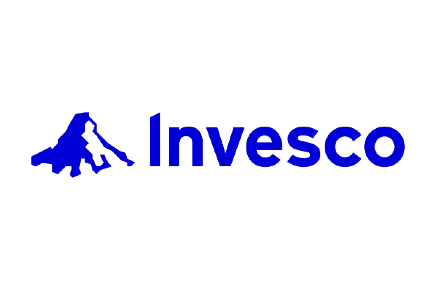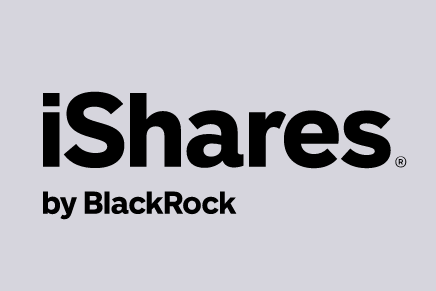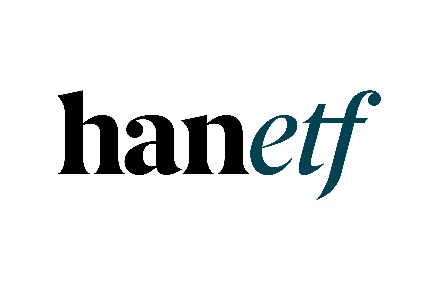Exchange-traded funds (ETFs) are one of the most popular methods for investing thanks to their simple, low-cost way of accessing an index, a niche group of stocks, and even commodities.
While it can be challenging to make an informed decision with so many ETFs on the market, I’ve done the hard work for you by curating a list of the top five best ETFs to buy in June, including the benefits of investing in them, and how to buy units for your portfolio.
Also consider: My guide to ETFs for UK investors
My best rated ETFs to buy, June 2025
- Invesco EQQQ NASDAQ-100 UCITS ETF GBP Hgd Acc. (LON:EQGB) – Tremendous growth potential.
- iShares UK Dividend UCITS ETF GBP Dist. (LON:IUKD) – Amazing passive income ETF.
- WisdomTree Physical Gold (LON:PHGP) – Safe assets.
- Hanetf ICAV Future of Defence UCITS ETF USD Acc. (LON:NATP) – Capitalise on the current geopolitical climate.
- Wisdomtree Sugar ETC (LON:SUGA) – Take advantage of current sugar prices.

Why buy this ETF?
- AI is expected to drive the bulk of stock market gains over the medium to long term, and most AI-related companies with plenty of growth potential are constituents of the index.
- NASDAQ 100 is now in correction territory and has the potential to rally in the medium term with interest rates peaking.
- Dividends are reinvested into the fund, making it a great compounder for long-term gains, especially given the large upward movements in tech stocks.

Why buy this ETF?
- FTSE 100 dividend yields are at one of their highest levels currently given the weakness in the UK market, so the c.6.9% dividend yield is very lucrative.
- One-third of holdings are in financial services such as banks which have tremendous potential to rebound in value with rate cuts expected in 2024. This should drive increases in ETF value alongside dividends.
- Portfolio is filled with blue-chip companies with excellent dividend coverage from earnings and free cash flow, making dividend payments fairly secure.

Why buy this ETF?
- Although gold doesn’t outperform the stock market over the long term, those seeking safety in the current macroeconomic and geopolitical environment can find refuge in physical gold assets without hefty management fees.
- Reliable parties handling assets, as the ETF is backed by physical, allocated gold held by HSBC.
- Only metal that conforms with the London Bullion Market Association’s (LBMA) rules for Good Delivery can be accepted by the custodian (HSBC). This provides insurance with physical assets, unlike other synthetic ETFs.

Why buy this ETF?
- With the geopolitical climate more unstable than ever, Western nations and NATO are increasing their defence budgets, with many defence companies being the main beneficiaries.
- Top five holdings in this fund are still trading under the average price targets set by analysts despite seeing massive gains over the past year. This leaves room for further growth with downside protection.
- Dividends are reinvested into the fund, enhancing compounding which could result in even higher gains.

Why buy this ETF?
- Sugar prices are sky-rocketing due to shortages, and with prices still below their decade peaks, there could be some way to go.
- Continuous poor weather conditions affecting crops across Europe, Brazil, and India are resulting in export controls, and are expected to continue affecting prices in the short term.
- Reasonable annual management fee of 0.54%.
Please note: The value of your investments (and any income from them) can go down as well as up and you may not get back the full amount you invested. Past performance is not a reliable indicator of future performance. Investments should be considered over the longer term and should fit in with your overall attitude to risk and financial circumstances.
What is an ETF?
An ETF, or “exchange-traded fund”, is a package of investments that you can invest in all at once.
When you buy individual stocks, you’re buying shares of a single company. Meanwhile, an ETF can contain multiple stocks, bonds, commodities, or a combination. When you purchase units in an ETF, you are essentially buying a share in all of them.
Most ETFs are designed to track a particular stock market index or segment, such as the FTSE 100. It can contain anything from stocks and bonds to commodities such as gold and oil.
The ETF will hold the assets that make up that index or market segment. This usually means the ETF providers will physically buy these assets.
For example, if you had an index ETF tracking the FTSE 100, the ETF would own shares in each of the 100 companies that make up the index.
With ETFs, you can gain exposure to hundreds of different assets for the price of one share. For instance, diversifying an investment portfolio using stocks and retail property would be much more costly. Therefore, ETFs hold great appeal to the everyday investor.
ETFs can be used to gain exposure to virtually any global market or industry sector. You can quickly move in and out of markets, hoping to catch shorter-term swings, much like a hedge fund.
Although most ETFs are passive investments and are passive funds, there are some actively managed funds also. These ETFs have investment or fund managers who hand-select the assets within the ETF.
Actively managed investments typically come with larger fees than passive funds. Check whether your fund is actively managed or passive before you invest.
ETFs vs mutual funds
While both ETFs and mutual funds pool money from more than one investor to access a diversified range of assets, there are some key differences.
Unlike mutual funds, units in an exchange-traded fund can be bought and sold between investors on a stock exchange throughout the day – hence the name “exchange-traded”.
Meanwhile, mutual funds cannot be traded freely on the stock markets, and any buy or sell orders you place will be made at the end of the trading day.
Of course, you’re free to invest in both ETFs and mutual funds as their various differences may mean one could be better for your investment strategy than another.
Also consider: Best Performing Funds 2025
What are the advantages of buying ETFs?
- Easy to trade – You can buy and sell ETF units throughout the day.
- Transparent – Most ETFs need to publish their holdings daily for investors to view.
- Tax-efficient – You can hold ETFs in an ISA. This means you can invest up to the ISA allowance (£20,000 in 2022/23) and any returns your ETF investments generate will be entirely free from Income Tax and Capital Gains Tax (CGT). Any dividend stocks in the fund will also be free from Dividend Tax.
- Very low cost – ETFs are typically much cheaper than traditional mutual funds, as there’s generally no fund manager to compensate for selecting or managing investments.
Are there any disadvantages of investing in ETFs?
- Trading costs – Since ETFs are not purely passive products, they do have costs associated with them. This is usually a small percentage-based fee.
- Illiquidity – Some ETFs may have wide bid price and ask price spreads. This could result in you buying at the high price of the spread and selling at the lower end.
- Tracking errors – Sometimes technical issues may cause discrepancies in the value of the ETF and the index it tracks. This may mean you don’t see the same level of returns you might have been expecting.
- Settlement dates – ETF sales are not settled until two days after the sale. This means you will not be able to reinvest your money until two days later.
Best ETFs to Buy Now UK FAQs
What ETF should I invest in UK?
The best ETF for you to invest in will always depend on your personal circumstances. If you want to invest in UK stocks, a FTSE 100 ETF could be a good investment for you.
On the other hand, if you would like to invest in commodities instead, then an oil or gold ETF could be the better investment.
Is it a good idea to invest in ETFs right now?
The value of your investment can go down as well as up and you may not get back the full amount you invested. Past performance is not a reliable indicator of future performance.
CFDs are complex instruments and more than half of retail investor accounts lose money when trading CFDs. Please make sure that you know these risks before you start trading and that you’re aware there’s a high chance of losing money rapidly on your investment.
